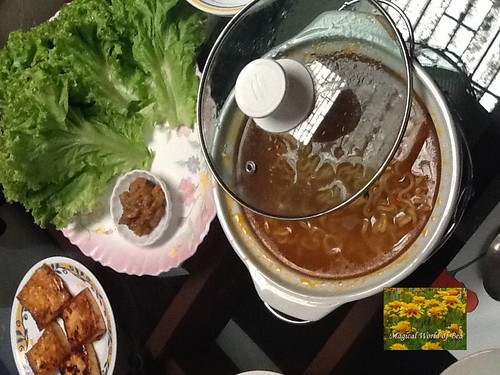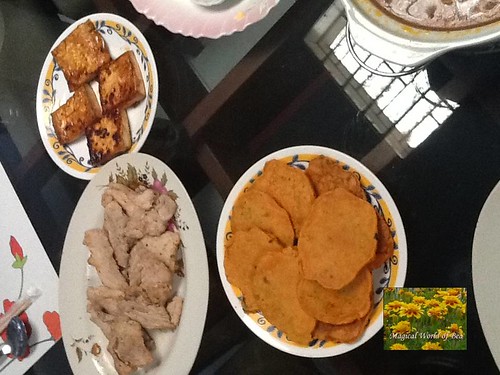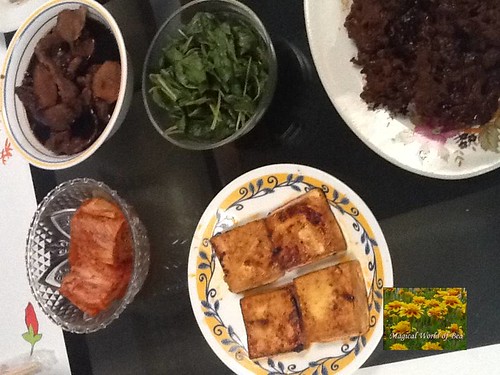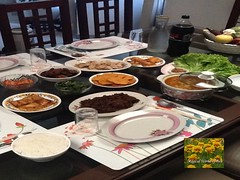 After a week of pure fish and vegetables, Papa chose to have an Easter Sunday Korean lunch at the comfort of our very own home.
After a week of pure fish and vegetables, Papa chose to have an Easter Sunday Korean lunch at the comfort of our very own home.
Jun cooked the samgyupsal, beef bulgogi, tofu, and ramyun while I did the kimchi pajeon, steamed spinach w/ sesame oil and the Korean beef stew. Of course, this will all not be a complete Korean banquet without the ever present kimchi and soyabean paste from Masan Garden.
At the end of our sumptuous lunch, we had full but not so heavy stomachs... and that's what I actually love most in eating Korean food...never heavy but always oh so satisfying!:-)
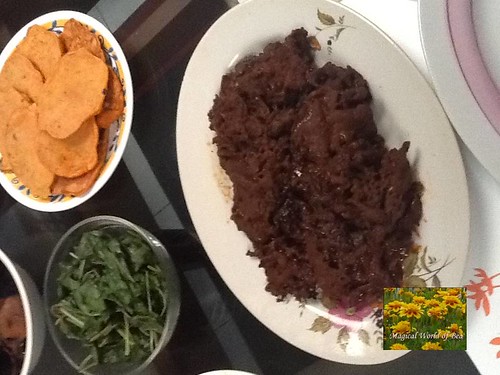 |
| steamed spinach with sesame oil, kimchi pajeon and beef bulgogi Papa intentionally didn't sprinkle some sesame seeds on top of the beef bulgogi because it'd be bad for his uric acid level...hihihi... |
At the end of our sumptuous lunch, we had full but not so heavy stomachs... and that's what I actually love most in eating Korean food...never heavy but always oh so satisfying!:-)
